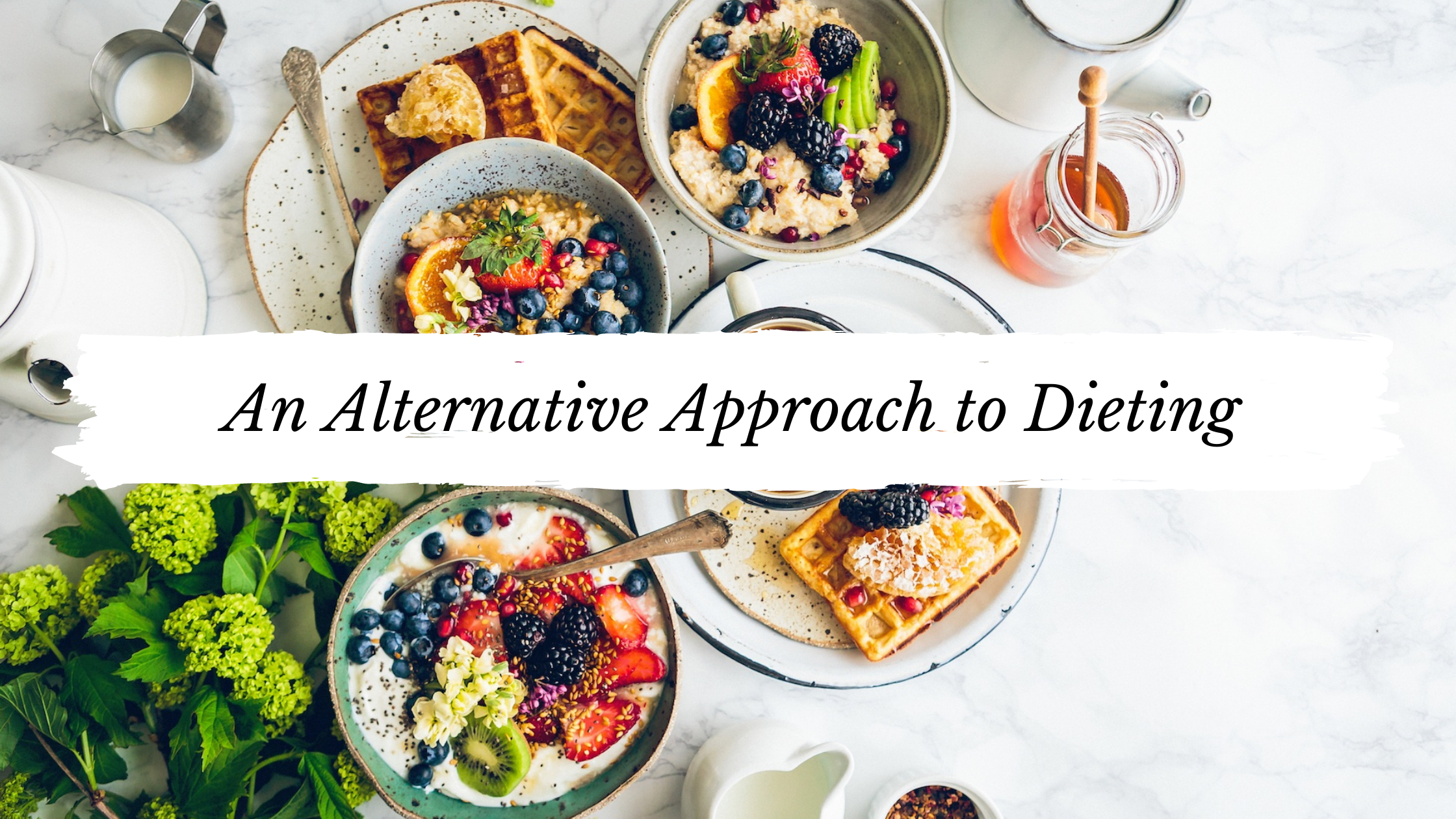
03 Aug Intuitive Eating
Okay. This is it.
I’m fed up with my weight.
I’m starting a new diet – and this time, I’m going to stick it.
No cheating.
No giving in.
I can do this.
Does this sound familiar?
How many times have you started a diet only to feel deprived and miserable? Then, you head to a barbeque, have a few drinks and you give in, leaving you feeling guilty and ashamed. The challenge with diets is they usually have a short-term focus, with an end goal, such as weight loss or muscle building. The bummer is that they often aren’t sustainable for the long term.
Rather than diet, why not follow an alternative approach that is more natural, practical, and manageable. The practice of intuitive eating provides a more healthful way to view your relationship with food and do so in a way that feels natural. Rather than restricting food, counting calories, points or macros, and following diet “rules,” intuitive eating allows you to listen to your body and eat what makes you feel your absolute best.
Your body is perfect. It is constantly telling you what you need to know – the question is – are you listening? When you stop and listen, your body will tell you precisely what you need to thrive. It can take some practice to learn how to tune in and listen for the cues. Here are some ways that you can start eating intuitively.
Listen to your hunger cues.
Too many diets focus on ignoring your hunger and training yourself to eat smaller portions. While portion control is important, physical hunger is your body’s signal that it needs more nourishment and energy. The key is choosing to eat nourishing foods. It’s also important to distinguish between physical and emotional hunger, brought on from emotions like boredom, loneliness and frustration. When you ignore your hunger cues, you are left feeling exhausted, irritable, and it can lead to a negative relationship with food. It takes some practice, but paying attention to what your body needs will help you give it exactly what it needs!
Ditch “good” and “bad” foods stereotypes.
The diet culture supports and pushes this perspective. Instead, think about the nutritional value of foods, some with more nutrients than others. The idea of good and bad foods only re-enforces restriction, feelings of guilt, and a negative relationship with food. What if you change your view and think: All foods are good for something, whether they’re full of micronutrients, give me an energy boost of energy, or make me feel happy (at least temporarily!). Start asking whether your foods are nutrient-dense instead of “bad” or “good.” Then, prioritize eating nutrient-dense foods and still enjoy the other foods you love mindfully. Take it one step at a time until you figure out the perfect balanced approach for your unique body.
Identify your cravings.
Have you ever been on a diet that eliminates all sugar and/or carbohydrates and all you want to do is eat those foods that are off-limits? If you truly want to eat something, sometimes the best thing to do is to satisfy that craving. If you’re craving something sweet, will a bowl of fruit or some dark chocolate fill the need? If only one specific food or food group will fill the need, then it’s important to identify what’s causing the craving. Maybe you feel stressed or upset. Or, maybe you are just dehydrated or over tired. Your cravings are telling you something, so it’s time to stop and tap into what is happening. Once you identify the pattern, you can create a strategy for the next time your craving comes up.
Eat to nourish your body.
The goal is to fuel your body with all the nutrients it needs to thrive. Eat to give yourself the energy to work, play, workout and feel your best. Food is your fuel. Just as you put the best gasoline in your car to keep it running smoothly, think of your body in the same way. Sometimes, overeating is used as a way to punish yourself or someone else. Remember, food is nourishment. Eat to sustain your health and to thrive. When you think about food in this way, the rules are less important and everything falls into place.
Intuitive eating takes practice, but once you start changing to your mindset around food, you’ll be amazed at the differences in your life. When you have a positive relationship with food, you will notice dramatic changes in your physical and emotional well-being.
MORE TIPS FROM TOP EXPERTS
For more information about lifestyle changes for long-term, sustainable weight loss from 80 Top Health and Wellness Experts (including ME!!), check out this great article written by Minuca Elena.
A LIFE CHANGING RESET
If you want a simple way to practice intuitive eating, join us for the August 16th 3-Day Reset Program, where we provide delicious nourishing soups and supportive coaching for 3 full days. It’s the simplest way to fuel your body with nutrients, while tuning into your body. And, best of all, there is no cooking, no cleaning and no mess.

Don’t miss your chance to eat like you love yourself!
Here are some of the many benefits that people have experienced from this easy 3 day program:
+ more energy
+ clearer skin
+ less belly bloat
+ less mindless snacking
+ control over your cravings
+ healthier snack options
+ better sleep
+ less brain fog
+ clothing fitting better
+ brighter skin
and a healthier mindset going forward!
The next program begins August 16th. Commit to jumpstarting your healthy eating habits today




Shift your Relationship with Food - Pure Simple Wellness
Posted at 18:48h, 10 May[…] diet culture has slowly shifted from being restrictive and counting calories to eating intuitively and listening to your body. Your goal is to feed your body and nourish it, so you can thrive – […]